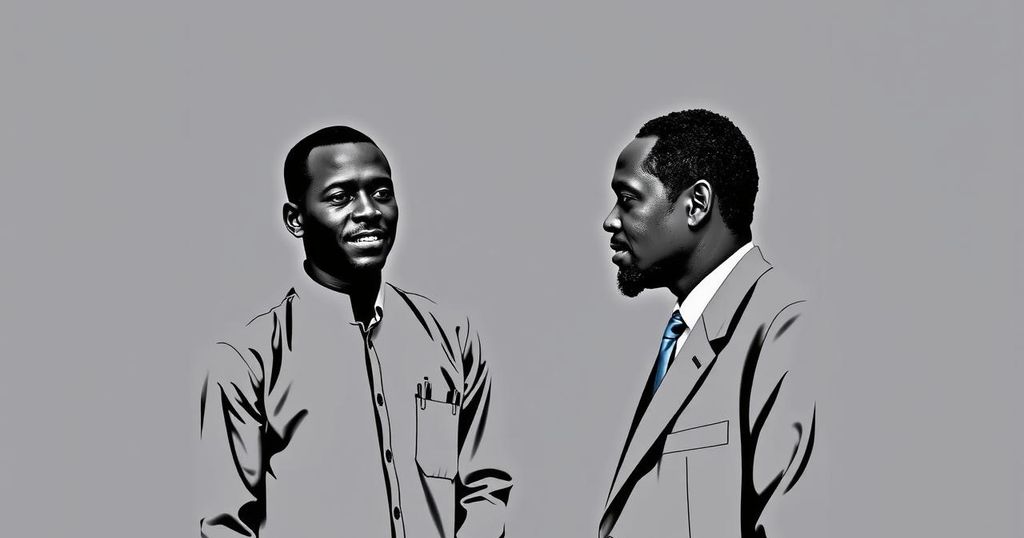South Sudan Denounces Allegations of President Kiir’s Family Business Empire

South Sudan has rejected claims from The Sentry that President Salva Kiir’s family controls a large corporate network contributing to the country’s poor economic conditions. The government characterized these allegations as unfounded and harmful, asserting their constitutional right to engage in business. The situation is exacerbated by ongoing political instability and corruption within the nation’s oil sector, which is vital to its economy.
On Thursday, the South Sudanese government vehemently rejected allegations made by the US-based watchdog, The Sentry, claiming that President Salva Kiir’s family had established a significant corporate network within the impoverished nation. The Sentry’s report detailed the existence of 126 companies linked to the Kiir family across various critical sectors such as mining, petroleum, banking, trade, aviation, private security, and logistics. It emphasized the necessity of transparency regarding these enterprises due to South Sudan’s notorious corruption issues, citing that Kiir-associated firms have been implicated in procurement scandals leading to the misappropriation of billions in public funds meant for the wellbeing of the citizens.
In response, Kiir’s office characterized The Sentry’s claims as “baseless and malicious,” asserting that South Sudan’s constitution allows citizens, including family members of the president, to partake in legitimate business activities. The office condemned the report as an intentional attack aimed at undermining the First Family and destabilizing the nation’s cohesion. The Sentry’s analysis revealed that 23 of Kiir’s relatives are shareholders in several companies, including his wife and children, while noting that the president’s name did not appear on any corporate documents associated with these entities.
Under South Sudan’s transitional constitution established in 2011 post-independence from Sudan, state officials, including the president, are prohibited from engaging in commercial businesses during their terms. The Sentry, co-founded by the prominent actor George Clooney, focuses on investigating corruption and the financial exploitation stemming from conflicts. South Sudan stands as one of the world’s poorest nations, ranked 177 out of 180 on the Transparency International corruption perceptions index. The country’s situation has been amplified by President Kiir’s recent decision to postpone crucial elections until December 2026, further aggravating tensions with international stakeholders.
The UN Commission on Human Rights in South Sudan has attributed the stalled political transition to systemic corruption and the diversion of public finances, noting that oil revenues continue to be mismanaged for the benefit of political elites. South Sudan boasts rich oil reserves, traditionally accounting for 90 percent of the GDP, yet the recent disruption of a key pipeline in neighboring Sudan has drastically reduced essential revenue streams.
The ongoing allegations regarding the Kiir family’s business interests reflect the broader challenges faced by South Sudan, a nation grappling with extreme poverty and systemic corruption. The Sentry, a prominent watchdog, focuses on issues of corruption, particularly in relation to high-ranking political figures and their networks. South Sudan’s transitional constitution outlines specific restrictions on public officials engaging in business to mitigate potential conflicts of interest, especially amid the country’s dire economic situation. Understanding these dynamics is critical to comprehending the implications of the reported familial business ties to the nation’s governance and economic health.
In summary, the South Sudanese government has firmly denied allegations by The Sentry regarding the significant corporate entanglements of President Salva Kiir’s family. The government’s accusations of malice against the watchdog’s claims highlight the sensitive nature of accountability in a nation struggling with poverty and corruption. With critical electoral processes delayed and ongoing financial mismanagement concerns, South Sudan’s future stability is at stake as it navigates these internal and external challenges, particularly in the wake of its substantial oil resources.
Original Source: www.france24.com






